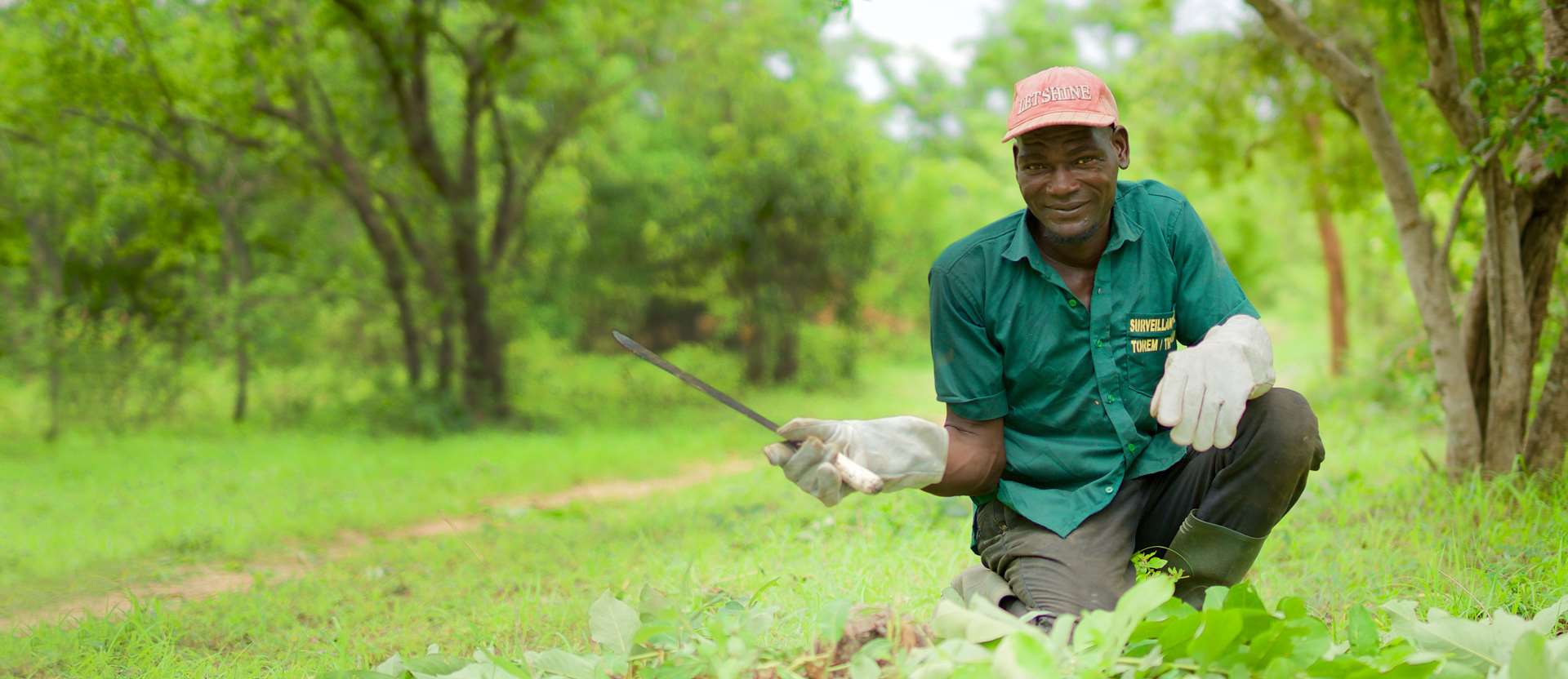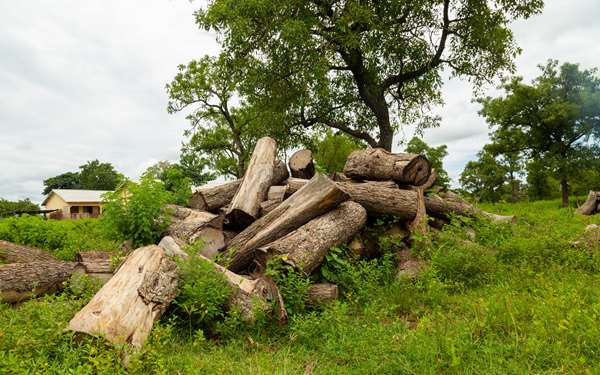
Protecting forests and land
Read about our forest governance approach."It is the one who sleeps in the house, who knows where the roof is leaking. The communities are at the forefront, they have the knowledge and great capacity to adapt"
Alexis Sompougdou – Tree Aid's Forest Governance Advisor

What is our forest governance approach?
We campaign for forests to be managed by the people who depend on them. We work with communities and local governments so they can agree rules for using forests and their resources.
This ‘bottom-up’ approach puts local people in the driving seat of climate action, paving the way for lasting changes to the way forests are cared for, whilst protecting the rights of local people.
Our forest governance approach is key to achieving the goals of our new strategy. By 2040, we want to see -
- Decentralised forest governance policies that will put the control of local assets into local hands.
- A thriving natural environment where deforestation and land degradation rates have been reversed.
- Resilient communities, equipped with the tools and training to manage their land and businesses.
Why is this needed?
When you rely on trees for your food and income, it is essential that you can access and manage and protect them. For communities living in the drylands of Africa, this can be difficult if land ownership is unclear, or people aren't aware of their land rights. As a result, many of the people that we work with are unable to manage and use trees in the way that they need.

How do we help?
For lasting change, local people need to protect and manage the forests and land they depend on. Working with local people, organisations, and policymakers, we work to ensure that forests are managed in an inclusive and participatory way by the people who depend on them.
We work with communities and local governments so they can agree rules for using forests and their resources in sustainable ways, which work for people and nature. These measures can help tackle deforestation and overgrazing, as communities can protect certain areas of land and create clear boundaries around the use of the forest.
We also work to influence policy — locally, nationally, and internationally — pushing for change that protects trees, people, and our planet.
Our forest governance work with women
At Tree Aid, we know that we must put local people, particularly women, at the heart of all our work. Our forest governance work supports women to gain fair and equitable access to land and forests.
Women have significant potential to tackle the interlinked challenges of poverty, climate change and biodiversity loss. However, they face many challenges - high levels of unpaid work, unequal access to health and education, and insecure land rights.
Women are pioneers in the management of the forest, and represent a pool of vital knowledge. Since the conception of Africa’s Great Green Wall in 2007, women-led forest governance projects have spearheaded some of the most effective land restoration. When women step into leadership roles to manage their local forests, we see benefits not just for communities and the land, but for women themselves, with growing confidence and a sense of community.



